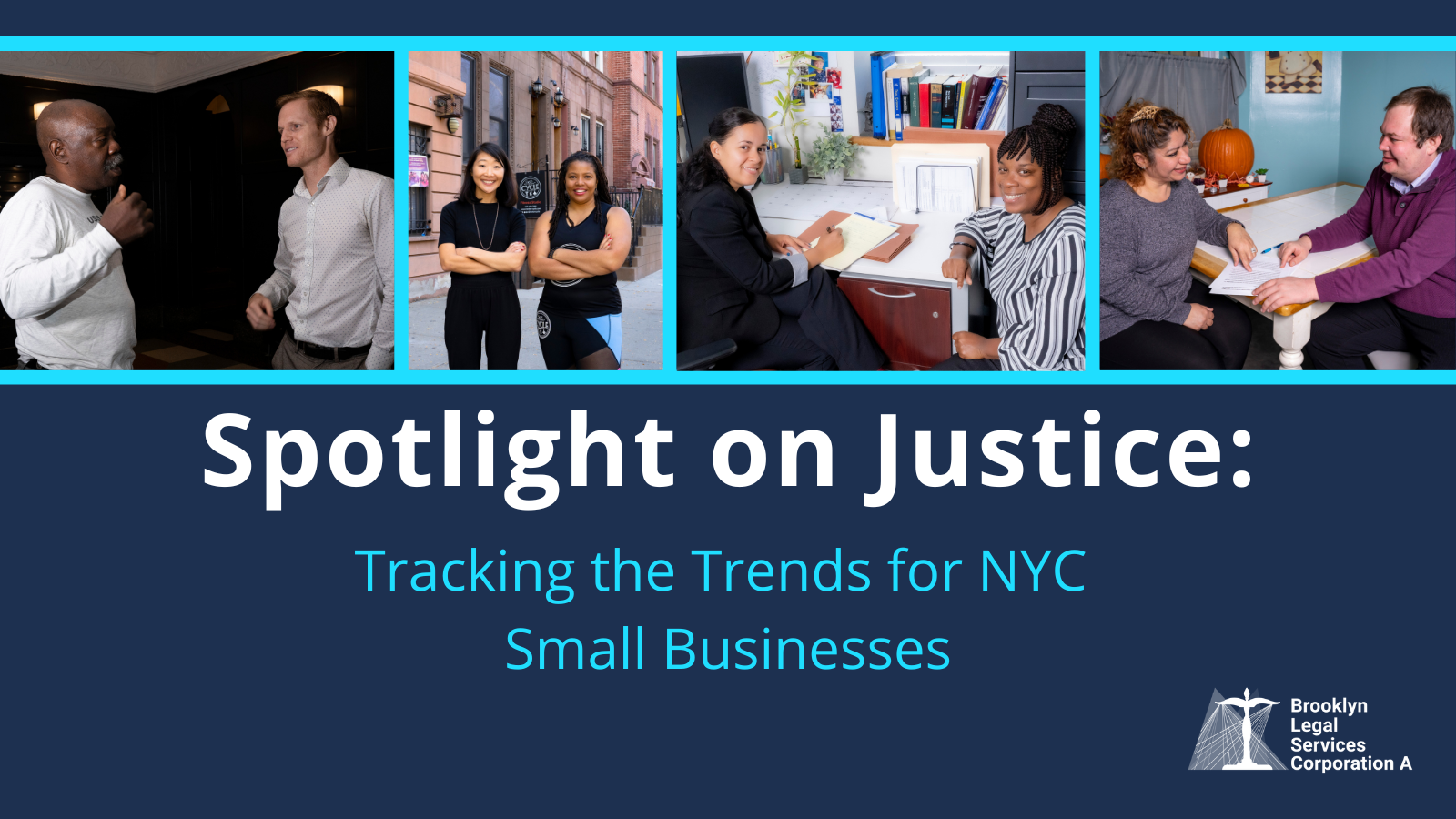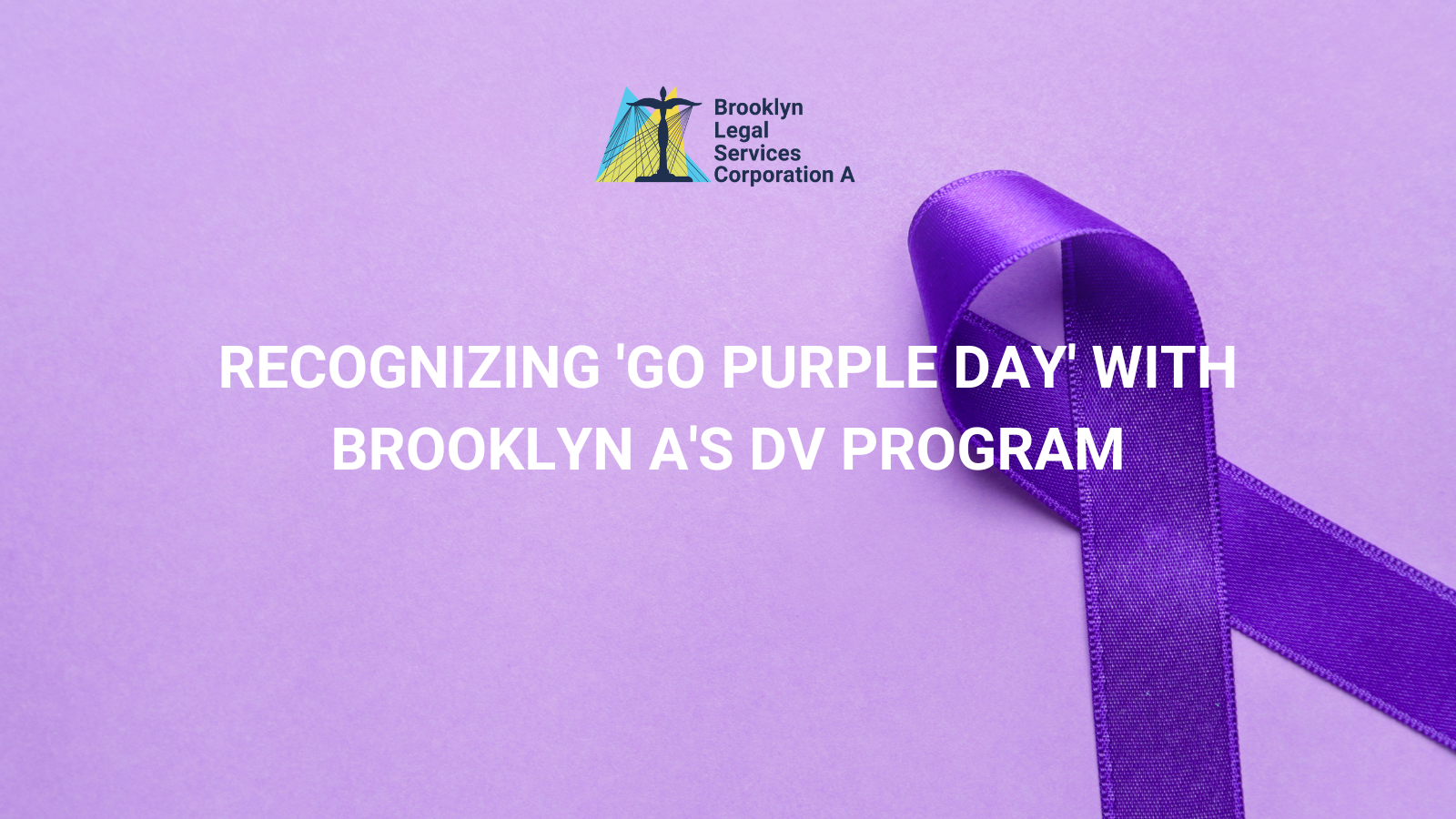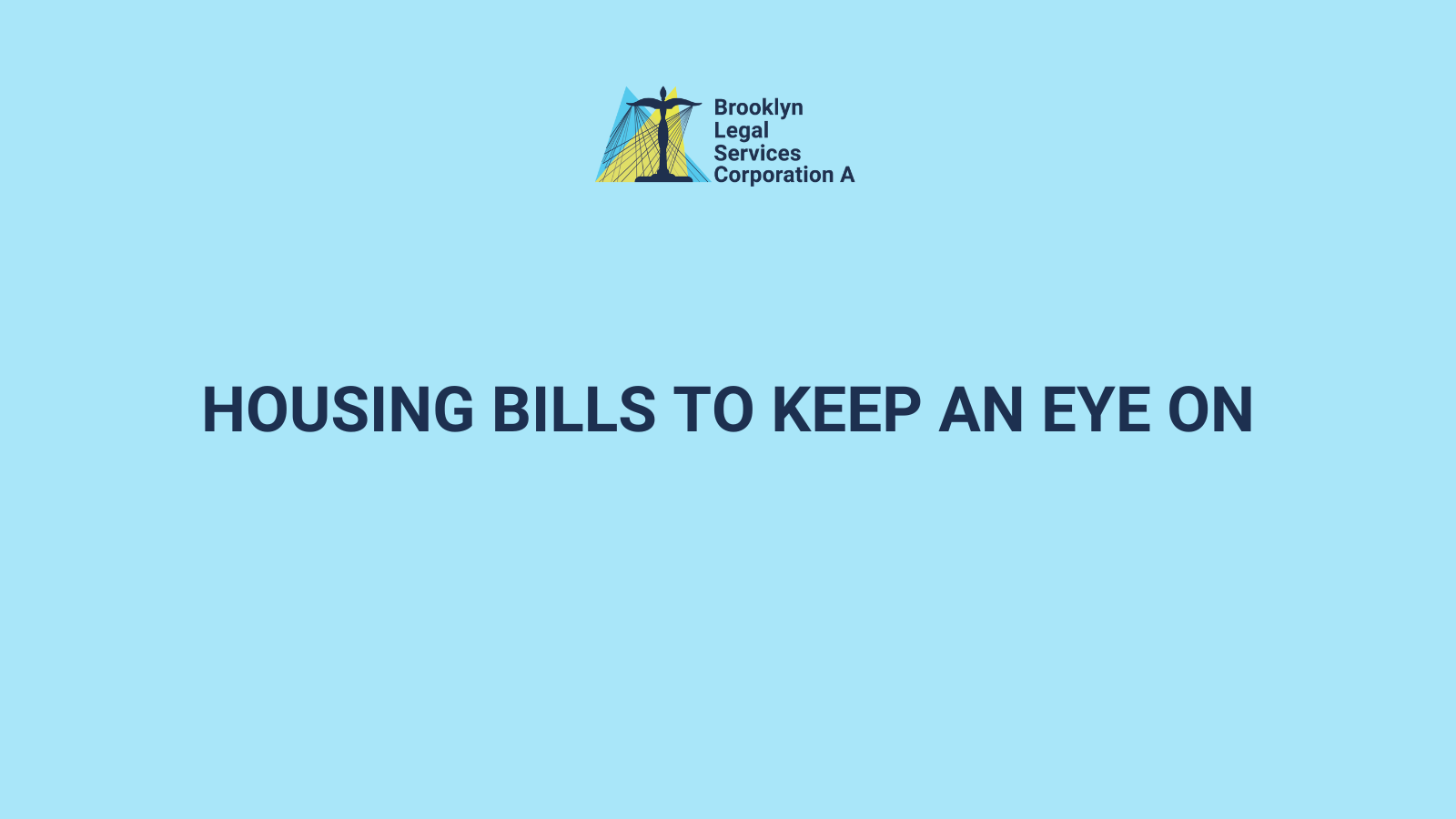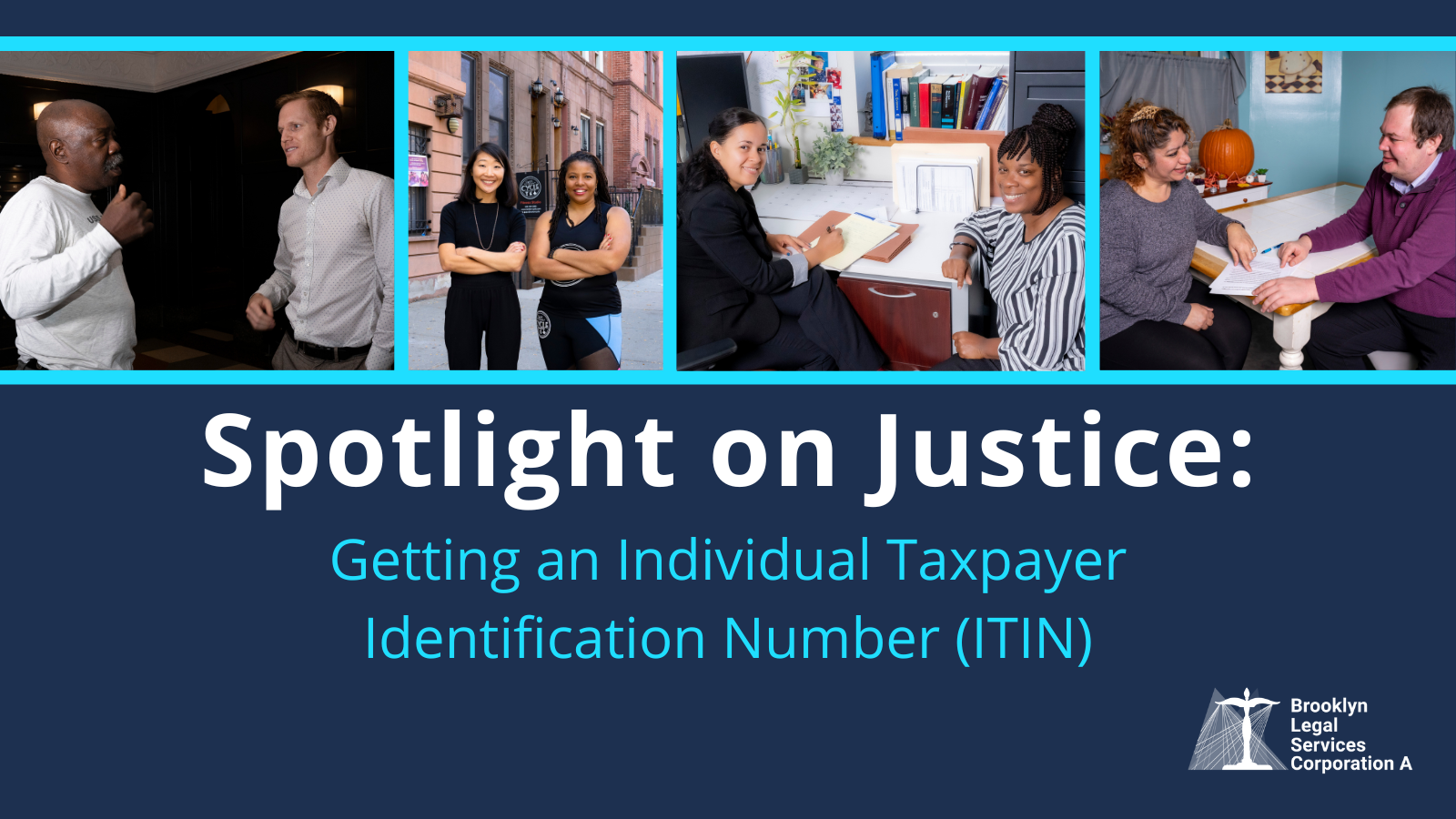By Daniela Adao October is an important month for Brooklyn A’s Domestic Violence Program: it…

Tracking the Trends for NYC Small Businesses
By Phariha Rahman
It’s been three years since the pandemic began and the impact of Covid-19 can still be felt in every sector and part of daily and New York’s small businesses have not been immune to inflation, gentrification, or decreased demand.
According to 2022 data, small businesses (fewer than 100 employees) make up 98 percent of New York State firms; in the City specifically, micro-businesses (fewer than 20 employees) employ more than half-a-million New Yorkers and are a vehicle for economic mobility for many working class and immigrant families.
Brooklyn Legal Services Corporation A (Brooklyn A) aims to support small businesses under the Commercial Lease Assistance program of the NYC Department of Small Business Services, through which Brooklyn A provides small businesses with free legal representation when it comes to their commercial leases.
Many people new to owning small businesses tend to focus on the rental price and location of a commercial space without engaging a lawyer for assistance in negotiating the details of their lease. This can leave business owners vulnerable: commercial tenants have few statutory legal protections in New York, so the details in their lease, or the lack of a written lease, can have a significant impact on a business’s ability to have success.
Common issues our small business clients have faced in recent months include rent arrears, landlord harassment, and landlords refusing to make necessary repairs. General good practices for commercial tenants are to document all interactions with their landlord such as rent payments, agreements, and communication.
This article does not constitute legal advice and every situation is unique. The best first step is to talk to a lawyer, and we at Brooklyn A have a team of experienced pro bono lawyers who can help you. To sign up for our services, you can fill out our online application using your SBS Connect account. You can also contact us directly at 718-487-2300 or at [email protected]. Want to meet virtually? Sign up for a free 30 minute appointment with our virtual small business clinic.
Rent Arrears and the Pandemic Era
In 2021, the Tenant Safe Harbor Act, which protected residential tenants from eviction during the most acute phase of the pandemic, was expanded to include commercial tenants. Because landlords could not evict commercial tenants, when small business commercial tenants struggled to pay rent they had greater leverage in negotiations to secure concessions such as repayment plans, arrears waivers, or repairs and maintenance.
The moratorium ended in January 2022, and with it the leverage commercial tenants had in negotiations with their landlords on arrears and maintenance. We have observed a trend of landlords demanding rent payments for the months of government shutdown, and a preference for evicting commercial tenants over agreeing to concessions that were more common during the moratorium.
While repayment plans can be negotiated transactionally, fighting an eviction notice requires appearing in court. Litigation is costly for anyone, but according to CPLR § 321(a); Matter of Sharon B., 72 N.Y.2d 394, 398, 534 N.Y.S.2d 124, 125 (1988) most corporate entities in New York are not legally permitted to represent themselves in court. This leaves small business owners with two options: hire an attorney with money they may not have or face a default judgment and potentially be forced to close their business.
Even after leaving a commercial space, landlords can often still hold a former tenant responsible for paying their arrears unless there is a clause protecting the tenant in the lease or a vacate and surrender agreement is made. Many commercial leases have a personal guarantee, which ensures that landlords can hold the tenant personally responsible.
Early Termination
As previously noted, commercial leases do not guarantee the same protections as residential leases. Terminating a commercial lease early does not guarantee that the landlord cannot hold the commercial tenant responsible for paying rent for the remainder of the lease, even if the tenant was not in arrears.
Landlord Harassment
In New York City, landlord harassment includes illegally locking a tenant out of the space, sending an eviction notice when the tenant is not in default, interfering with business, or using force or threats against commercial tenants. While landlord harassment is illegal according to the “Non-Residential Tenant Harassment” law and perpetrators can be fined between $10,000 and $50,000, it is still relatively common. One study conducted by the Association for Neighborhood & Housing Development (ANHD) found that 40 percent of responding small businesses in the Lower East Side, Jackson Heights, and Kingsbridge reported experiencing some form of harassment from their landlord.
One of the most common forms landlord harassment can take is the landlord creating conditions where the commercial tenant would not want to stay in the space. For example, one landlord removed the air conditioner from a commercial space without giving the tenant notice and despite the air conditioner being part of the lease.
Time Pressure
Another common tactic used by many landlords is giving prospective commercial tenants a tight deadline, often less than two weeks, for signing a lease. The process of finding an attorney, that attorney reviewing a 60-page lease, and then negotiating that lease can take weeks. While not technically harassment, this tactic is intended to coerce business owners to sign a lease without taking the time to understand and negotiate it. However, commercial tenants understanding and negotiating their lease is essential in running a successful business as leases often favor the landlord over the tenant.
Repairs
Unlike in residential spaces, in New York landlords are only responsible for maintenance of commercial spaces if it is stipulated in the lease. Generally, most boilerplate commercial leases provide that landlords are responsible for repairing structural issues and all other maintenance is the tenant’s responsibility.
However, landlords are often reluctant to make repairs, sometimes even when they are inarguably within their domain of responsibility. Although a business owner or their attorney can try to negotiate with a landlord, if the landlord refuses, ultimately the only way to force them to make repairs is through litigation.
When a landlord refuses to make repairs necessary for a business to operate, that business will often either shut down or the owner will pay out of their pocket for the repairs. Even in cases where the business can still operate despite the repair need, this can still have negative consequences. In one case, a salon’s leaky roof caused the base of a $7,000 barber chair to rust and the landlord’s failure to repair a hole in the basement made it a breeding ground for mold and rats.
Immigrants and Cultural Barriers
Roughly 48 percent of small businesses in New York City are owned by immigrants who face unique challenges in addition to the ones previously mentioned. They are more likely to not have a commercial lease compared to American-born business owners. We have observed that this is particularly common in the Bronx and Queens. Many of these commercial tenants are reluctant to ask their landlord for a lease because they fear the landlord reacting negatively or retaliating based on their immigration status. This means these business owners are subject to the whims of their landlords, as not having a lease also means that they do not have the protections afforded by one, such as the right to enter and operate in the space. For one Brooklyn A client, a salon in the Bronx, this meant that their landlord was able to demand $400 in addition to their rent to make up the difference of what he claimed another business interested in the space was willing to pay. After paying the additional amount, the landlord sent the client an eviction notice.
Language barriers also present a significant obstacle in these commercial tenants’ ability to advocate for themselves. Demands for rent are typically written in English and so many of these commercial tenants fail to understand the gravity of the situation until they are being evicted.
Opportunities
New York Forward Loan is a new loan program intended to support small businesses, nonprofits, and small landlords in New York state. The loans are available with interest rates ranging from 9.25 percent to 12.25 percent, rather than the typical 10.5 percent to 13 percent.
In addition, New York City Small Business Services (SBS) offers various services to small businesses in the 5 boroughs such as preparation for inspections, help creating a business plan, and loan and grant resources.



